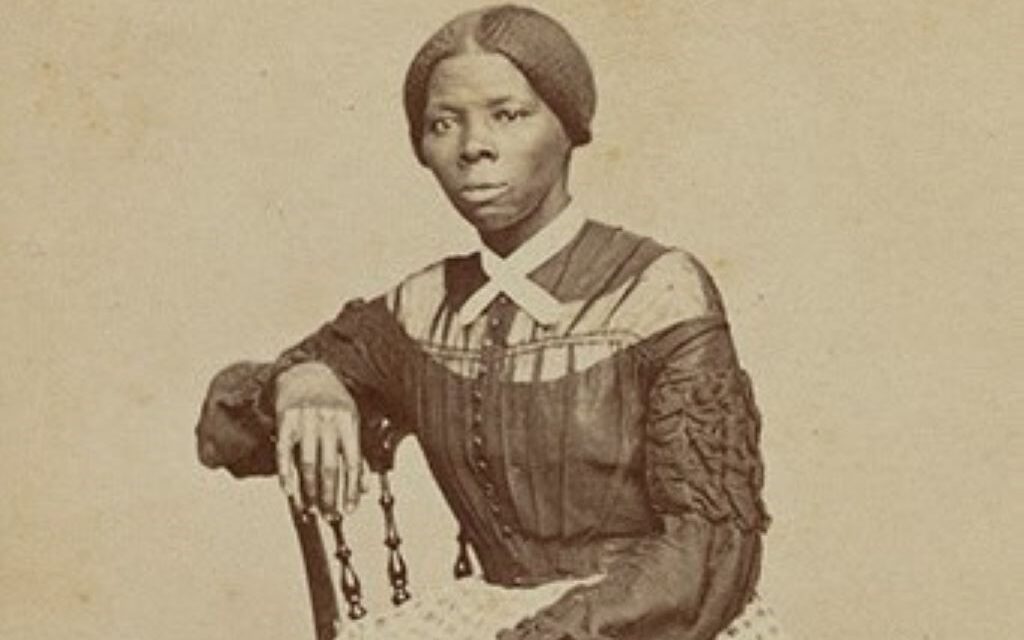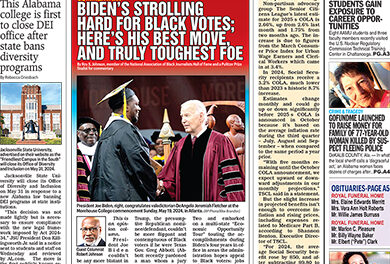By Sen. Cory V. McCray

Malcolm X once said, “The most disrespected person in America is the Black woman.” His words resonate deeply today, particularly when we reflect on how often Black women have been left out of the historical narrative. Despite their enormous contributions, women like Harriet Tubman, Maggie Lena Walker—the first African-American woman to charter a bank in the United States—and so many others have often been sidelined in history books, overshadowed by their male counterparts. This erasure has had profound consequences on how we remember our past and who we honor in our present.
In recent years, states have passed laws that censor or limit the teaching of Black history in schools. Framed as curriculum reform or anti-divisive measures, these laws do far more than adjust content—they distort history. Even locally, we see attempts to revise African-American studies, such as the recent effort in Harford County, Md., to remove critical parts of African-American history from the curriculum. By reducing or erasing the contributions of Black Americans, and particularly Black women, from textbooks and classrooms, this sanitization deprives future generations of a complete American history—one that includes the struggles, resilience, innovation and triumphs of women who fought against systemic oppression.

This erasure inspired me to take on a legislative effort initiated by Chanel Compton, executive director of the Banneker-Douglass Museum, and Del. Shaneka Henson (D-Md.-30A), who asked me to lead the charge in the Maryland State Senate. Together, we sought to honor the legacy of Dorchester County native Harriet Tubman during the 2024 Legislative Session with Senate Bill 341.
Tubman’s name has long been synonymous with Black history and American history. The legislation renames the “Banneker-Douglass Museum” in Annapolis to the “Banneker-Douglass-Tubman Museum.” Just a few blocks from the State House, the museum is dedicated to documenting, interpreting, and promoting African-American history and culture. The change is a deliberate recognition of the profound contributions Tubman made, alongside those of Benjamin Banneker and Frederick Douglass, to the fight for freedom, equality and justice in American history.
The debate over including Tubman’s name isn’t new. When the museum opened in 1984, there was extensive discussion about adding her name to the marquee. The fact that her name was omitted underscores the broader issue of Black women’s historical contributions being overlooked. I learned that this conversation spanned over five years, reflecting the persistent challenges in fully acknowledging the role of women in shaping our history. The decision to finally include Tubman’s name is a step toward rectifying that omission and ensuring that future generations understand the full scope of her contributions.

For me, the fight to pass this legislation was made meaningful by the phenomenal women who dedicated their time, voice and advocacy to SB 341. Chanel Compton, whose leadership in initiating the bill was instrumental, and Maya Davis, vice chair of the Maryland Commission on African American History and Culture, both played critical roles in this journey. It was an honor to have them by my side as we testified before the Education, Energy, and the Environment Committee. Through the efforts of Chairman Brian Feldman (D-Md.-15) and Vice Chair Cheryl Kagan (D-Md.-17), the committee voted the legislation out immediately after their compelling words, delivered on the first day of Black History Month, which highlighted Tubman’s leadership during the Civil War and her freeing of 700 enslaved people.
On the House side, Del. Henson, of Anne Arundel County, cross-filed the legislation as House Bill 390, working tirelessly to ensure its passage. The bill was ultimately signed by Gov. Moore on April 9. Including Tubman’s name invites us to remember the full scope of her contributions—just as schools should strive to present a comprehensive history that includes all voices, especially those often marginalized. Both museums and schools serve as custodians of the collective memory. The decision to include Tubman’s name in the museum reflects the same responsibility we bear in our educational curricula. What stories do we highlight? Whose contributions do we emphasize?
In the end, what’s in a name? Everything. It’s our past and our future. It’s our history, identity, and commitment to telling the whole story. By honoring Harriet Tubman with this renaming, we are celebrating her incredible life and making a statement about who we are and who we strive to be—a nation that acknowledges and learns from its full history. Because if we don’t know where we’ve come from, how can we ever know where we’re going?
The post A name that tells the whole story appeared first on AFRO American Newspapers.











